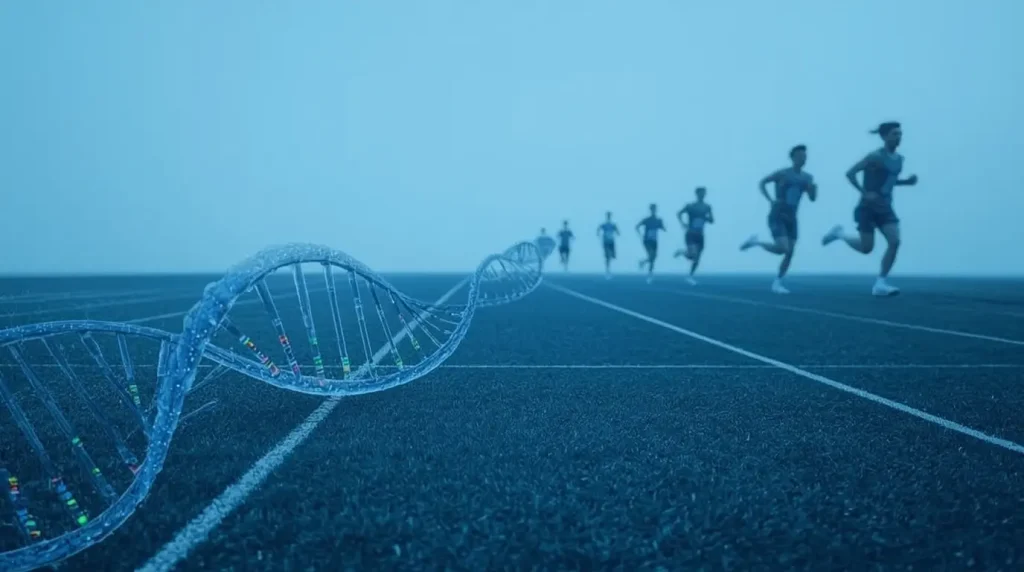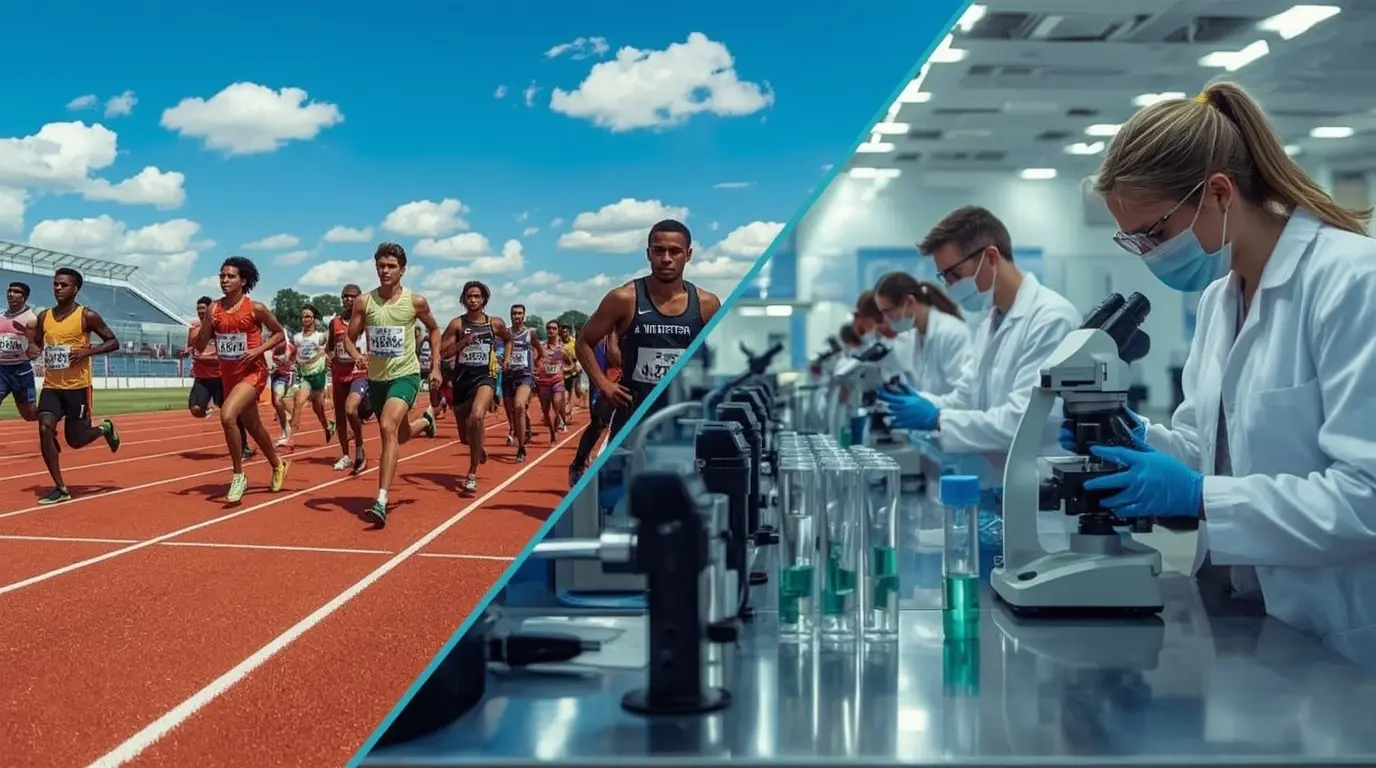The New Sex Testing Rules Shaking World Athletics: Balancing Fairness and Human Rights
The world of elite athletics is facing an incredibly complicated and emotional moment: new sex testing rules. World Athletics is rolling out genetic checks for female competitors, and the arguments over fairness versus basic rights are getting louder. The big new rule requires female athletes to be tested for the SRY gene, usually found on the Y chromosome. This move is pushing the Athletics community to rethink science, identity, and fairness on the world stage.
Understanding World Athletics’ New Sex Testing Policy
World Athletics calls the latest rule a “once-in-a-lifetime test” for any athlete who wants to enter the female category at top international meets. Starting September 1, 2025, each athlete must either give a cheek swab or a blood sample to find out if the SRY gene is present. The body claims this gene is a “reliable proxy for determining biological sex”—the main basis for the new athletics regulation.
President Sebastian Coe recently stated that the core idea behind the new athletics regulations is “the protection and the promotion of the integrity of women’s sport.” He wants all female athletes to “enter a sport believing there is no biological glass ceiling,” meaning no physical barrier based only on biology can unfairly affect their performance. The organization believes that these updated sex-testing guidelines are a key way to keep competition in women’s athletics level and fair.

The new athletics rules divide women’s competition eligibility into four clear groups:
- Anyone assigned female at birth and who does not carry a Y chromosome
- Assigned female at birth who has taken testosterone for gender-affirming health care, but who follows hormone limits
- Assigned male at birth with Complete Androgen Insensitivity, and who has never experienced male puberty
- Assigned male at birth with certain differences in sex development, who follows a published pathway for eligibility
Real Lives, Hard Choices: Docus Ajok’s Story
Real harm lies in bright, intense, and hollowing personal stories. Ugandan runner Docus Ajok, a middle-distance hopeful, dreamed of an Olympic medal. Instead, her athletics career collapsed the moment she took a testosterone test in 2019. She never learned the result but was told not to run her best races, the 800m and 1,500m. “I best helped my family with money for hospitals, schools, siblings, and much else. (Now) there’s nothing. We move forward in struggle, day by day.”
Kenyan sprinter Maximila Imali went through the same ordeal as many female track athletes. In 2014, officials ordered her to take blood tests and physical exams. A few months later, her manager called with terrible news: she had been banned from the 800 meters because her testosterone levels were too high.
“My career ended just like that. Nobody is fighting for me,” she said. “My country has just left me the way I am. I cannot provide for myself or my family; my family is depending on me. I have a son depending on me. Athletics is everything that I have.” Her story is not unique; more and more female athletes, especially those from the Global South, find their livelihoods and identities threatened by unwritten rules that many within the track world know little about.
Historical Context: The Troubled Legacy of Sex Verification in Sports
Sex tests in women’s sport have a long and painful history. The 1960s were a turning point, as sporting bodies sought to protect the “integrity” of competition. The first organized screenings took place at the 1966 European Athletics Championships in Budapest. Officials forced female athletes to stand in humiliating cases called “nude parades” so that doctors could visually inspect their bodies for evidence of female secondary sexual features. The tests were painful, degrading, and, ultimately, arbitrary. Even today, athletes recall those clear, bracing memories of explicit trauma.

The International Olympic Committee (IOC) rolled out chromosome-based Barr body testing starting at the 1968 Mexico City Olympics. They marketed the process as “simpler, objective, and more dignified,” yet the reality was very different. The test overlooked the complex biology behind sex and often misidentified. Here’s a brief history of sex testing in international sports:
| Era | Testing Method | Problems Identified |
|---|---|---|
| 1960s | Visual inspections | Degrading, humiliating |
| 1968–2000 | Barr body testing | Inaccurate, failed to recognize biological complexity |
| 1990s–2019 | Case-by-case evaluations | Targeted certain athletes |
| 2025–present | SRY gene testing | Ethical concerns, legal challenges |
Spanish hurdler María José Martínez-Patiño lived the harmful impact of the older testing regime. In 1985, an XY karyotype she had always had led to her eviction from the Spanish track team. When she was finally diagnosed with Androgen Insensitivity Syndrome, she demonstrated she was unaware of, and unaffected by, her chromosomes. Reinstated at last, Martínez-Patiño still lost the Olympic moment she had trained for her whole life.
Martinez-Patino calls the new rules “a setback of several decades.” Her take is blunt: “We’re back to the 1950s and 1960s. The science hasn’t moved forward at all. If we’re now saying women with X and Y chromosomes simply are not women, where’s the progress?” Her pain is the pain of anyone caught in rigid boxes of “man” and “woman” that science has never really built.
The science of sex testing holds more curves than straight lines. The SRY gene, usually the “maleness switch,” doesn’t work the same in everyone, as Professor Alun Williams from Manchester Metropolitan University notes. “There are a few—a very small number of cases—where something else in the system trumps the SRY signal.” The tiny exceptions test the tidy male-female picture.
Inside these exceptions direct the “differences in sex development” label, DSD for short. Chromosomes, hormones, and anatomy mingle in ways that skip neat boxes. Bio sex, instead, drifts along a curve. Surveys put DSD in 0.02% to 2% of all births, so somewhere between nearly everyone and millions of people could never think the alphabet soup of XX, XY, XXY, and so on applies.
For people in rural districts and poorer cities with scant genetic labs, the numbers feel abstract. They wake up in soft comfort, seize the same shuffle to work, have the same sun-rise routine, until the lifelong image of “woman” or “man” and how they’re wired is flipped by a letter, a test, a new headline.
Molecular biologist Dr. Williams casts doubt on the idea that intersex athletes with Differences in Sex Development (DSD) automatically have a competition edge: “We don’t have solid evidence showing how much a DSD might change performance, and that number probably varies a lot across the different kinds of DSD.” Even Dr. Andrew Sinclair, the scientist who first identified the SRY gene, warns that using this gene to decide sporting eligibility is misguided. Sinclair explains that “all the SRY test says is if the gene is there,” leaving dozens of other biological factors untouched.
These tests have tripped over messy, real-world and legal hurdles. By September 2025, 95% of female athletes had gone through the testing before the Tokyo World Championships—yet problems bubbled up for competitors from France and Norway, where the law bans genetic tests that aren’t used for medical care. This shows that not every country is on the same page when it comes to consent and privacy. National legal limits raise wider alarms. An in-depth piece on the VerfassungsBlog explains how assorted nations have statutes that restrict genetic screening, leaving reins on the governing bodies and the risk of legal spin-outs.
| Legal Challenge to Sex Testing Rule | Explanation | What’s at Stake |
|---|---|---|
| Testing Must Have Health Purpose | Genetic tests should only be done to improve health. | Race entry gives no medical benefit to athletes. |
| Benefits Can’t Be Conditional on Tests | No health program should make help depend on a genetic test. | Athletes can compete only if they pass the test. |
| Consent Must Be Truly Voluntary | Athletes should agree to tests without pressure. | Threat of losing eligibility may force agreement. |
| Regulations Must Protect All Genetic Data | Health laws treat genetic results as sensitive. | Private groups control the results and share them. |
Human rights rules, like the Council of Europe’s agreement, state that genetic tests should only help health or research tied to health. Requiring a sex test to compete, as World Athletics does, offers no health value and may break this rule. Consent is also a problem. A VerfassungsBlog piece explains that “consent given under threat of ineligibility, among other attendant consequences, cannot be said to be free of inducements.” This is worse for minors, who cannot legally consent to genetic tests yet may be forced to provide one.
Divergent Approaches Across Sports Organizations
The global sports world still has no clear path on sex testing and eligibility rules. Following the pattern set by Athletics, World Boxing recently announced that all women’s championship entrants must undergo sex tests. The official line says that competitors with any Y-shaped genetic material or with disorders of sex development (DSD) showing significant male hormone effects must fight in the male division. This guideline mirrors the tightening rules in other sports.
In contrast, the International Olympic Committee (IOC) has urged caution. In a 2024 statement, then-president Thomas Bach explained that sex cannot be reduced to simple XX or XY labels: “It is scientifically not true any more.” The caution looks to avoid the backlash and legal risks that have marred other organizations.
The 2024 Paris Olympic boxing draw reignited the debate. A week after Olympians Imane Khelif and Lin Yu-ting were dropped from the preceding world championships for gender tests, the same boxers claimed gold, this time without incident. The quick crossover from suspension to success has led critics to wonder whether any unified, fair set of eligibility rules is even possible.
New IOC president Kirsty Coventry has signaled that safeguarding the women’s category will be her leading focus, which hints that she might back some version of sex testing for athletes in every sport. Yet the president of the International Paralympic Committee, Andrew Parsons, has resisted uniform rules, saying that each international federation should set its own guidelines.
The discussion often hinges on two opposing ethical needs. Some officials argue that women’s competition must remain fair, while others defend the dignity and privacy of the athletes. World Athletics insists that its guidelines “do not judge or question gender identity” and that the goal is to protect the “dignity and privacy” of every competitor.
Still, opponents claim that testing required for athletes’ classification challenges dignity and undermines privacy. Payoshni Mitra, head of the athlete rights group Humans of Sport, contends that policies framed in this way have “for decades now” hit women athletes from the Global South hardest. “In many of these countries, there simply isn’t a formal support system that can walk them through the nuances of the process,” she explains, emphasizing that even basic information can be scarce.
Malaika Mihambo, Germany’s Olympic long-jump gold medalist, has criticized athletics authorities for putting top dollars into “sex” testing while ignoring bigger hazards. “If you’re worried about integrity, then let’s focus on cheating, harassment, and violence in sport, not on anatomy,” she stated, saying the same energy should tackle more urgent threats.
Looking Ahead: Will Tested Policy Stick?
While the World Athletics Championships in Tokyo roll on, no one can say for certain the sex-testing policy will last. Lawsuits are expected from athletes who say the tests invade their privacy and unfairly penalize them. Imane Khelif, an Algerian boxer, has asked the Court of Arbitration for Sport to toss World Boxing’s DNA testing rule. Her complaint could shape the future for many who feel wrongly judged.
There are also signs that science could help rethink the policy. Professor Ana Martinez-Patino, a sports geneticist, argues testing should go case by case: “There are over 60 genetic markers to consider. Let’s sort them out individually instead of treating anatomy like a traffic light—strict and permanent. Each athlete deserves that care.” Martinez-Patino’s call for flexibility could lead to fairer guidelines soon.
She also highlights the need to be clear about separate issues: “The trans conversation is not the same as the DSD conversation. They demand different respect and different care.”

Conclusion: Finding a Path Forward
The rollout of sex testing by World Athletics marks the sharpest turn in gender verification since the widespread adoption of routine testing was abandoned years ago. Intended to guard the fairness of competition, this policy instead throws the spotlight on biology, identity, and human dignity.
When governing bodies meet to untangle these issues, they must juggle many, often conflicting, obligations: to secure the future of women’s athletics, to uphold the dignity of every athlete, to recognize the messy and incomplete scientific picture, and to comply with laws already tested in courts. Mitigating the hurt of one group indisputably risks harming another.
The experiences of Docus Ajok, Maximila Imali, and Maria Jose Martinez-Patino remind us that behind the charts and boardroom talks are human lives at a crisis point. Martinez-Patino put it best: “Everybody talks about the medals. Do they ever stop to imagine that behind every victory are hours of grief, piled disappointment, years of silence, and graffiti scars on the soul?”
Moving ahead calls for people to keep talking, for us to boost our knowledge of science, to feel for athletes at the center of this, and to change rules whenever new facts come to light. What we call sex testing for athletics right now might mark a useful moment in this change, yet it probably won’t be the last step in a problem that touches our shared humanity more than most.
Source: https://edition.cnn.com/2025/09/18/sport/athletics-sex-testing-ruling-human-rights-intl
For more news updates, visit our home page.




